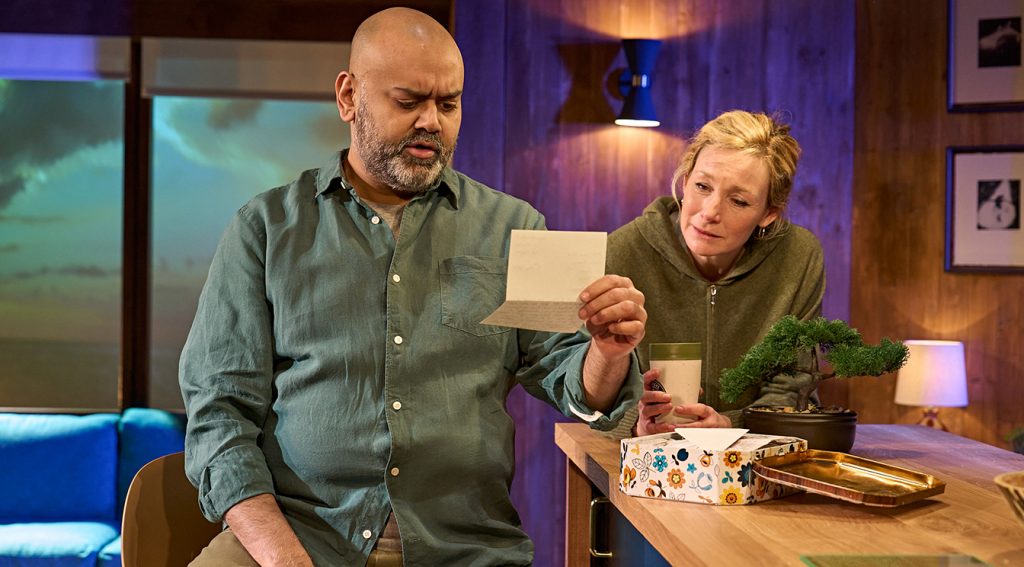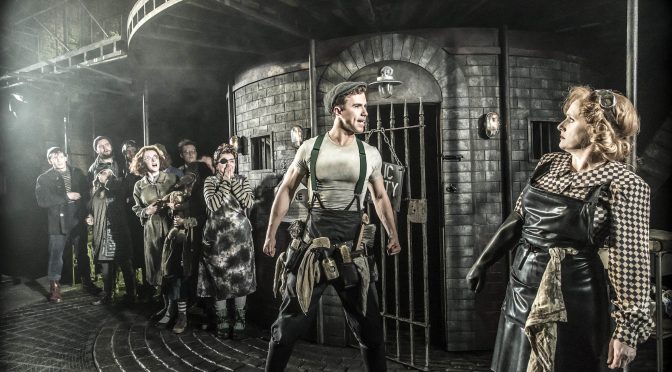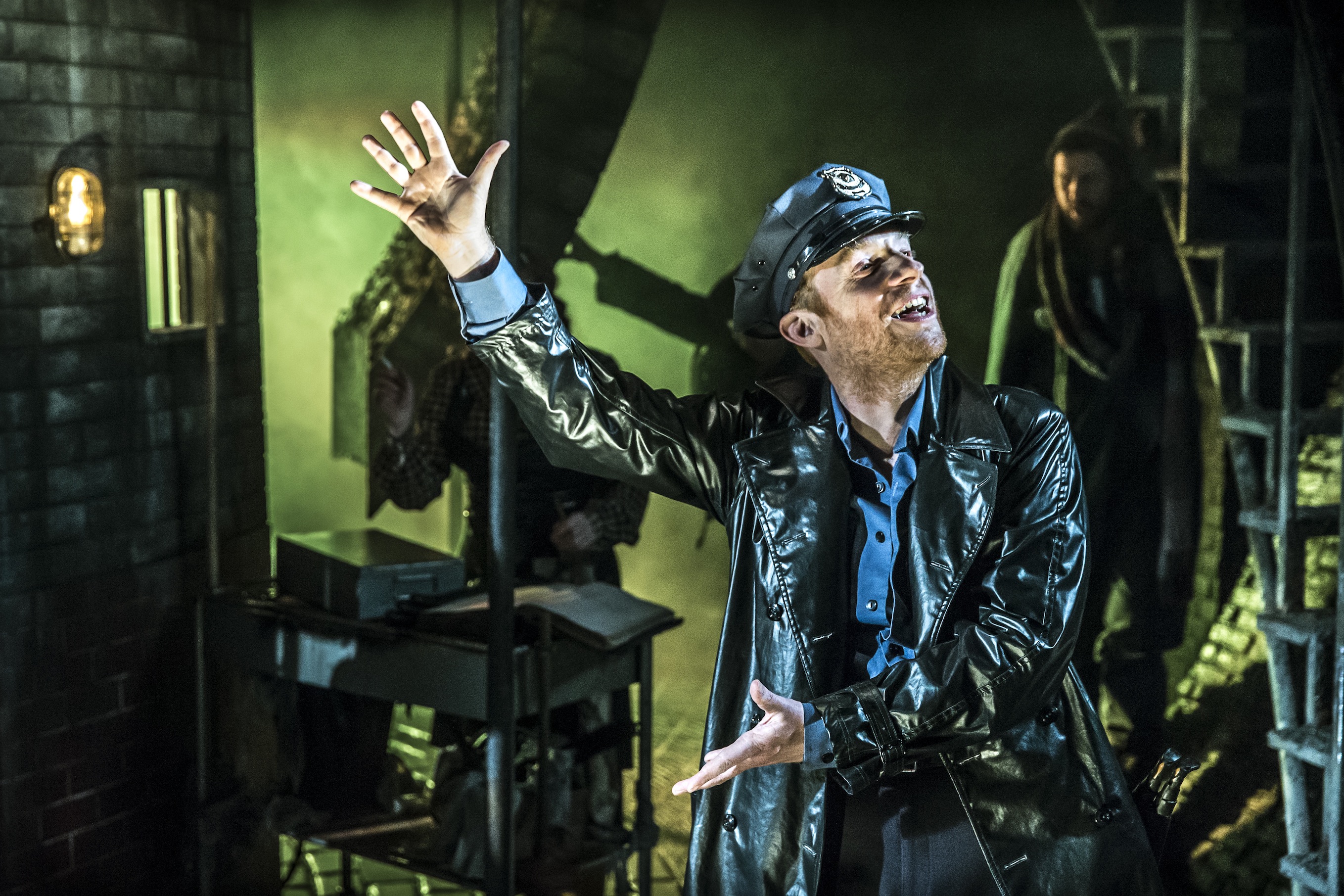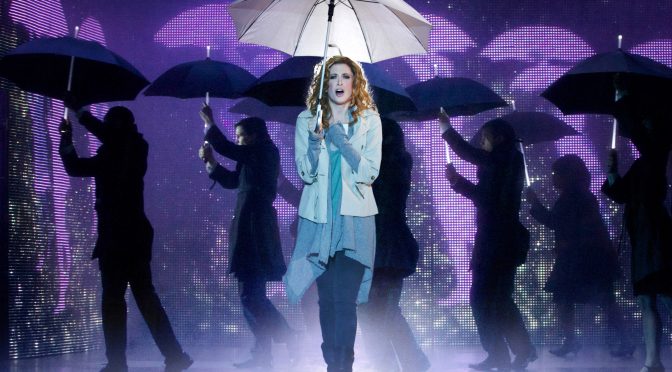Given that it deals with dementia, grief and artificial intelligence it’s not a surprise that Jordan Harrison’s play is fairly hard work. But given that there’s little so little action in the piece, Marjorie Prime packs a remarkable punch. Tightly written, fraught conversations lead to a chilling conclusion, which I suspect was the inspiration for the whole show.
Although the 2014 play has already been a hit – and a film – plot spoilers are especially tricky as so much of the piece’s power come from its twists and structure. It doesn’t seem too naughty to say the show opens with Marjorie and her ‘Prime’ – a robot that looks like her husband 50 years ago and is learning to be like him to aid her memory. Creeped out yet?
Harrison is light on the science behind AI, and some might like more explanation – or even more exploration of problems that, surely, come with the very idea. The technology is accepted (which is probably an accurate prediction) and doesn’t follow a cliché of becoming evil. Richard Fleeshman seems underused in the robotic role, but his calm performance is entirely appropriate. Likewise, Dominic Dromgoole’s cool direction appreciates the play’s tone. Understatement is fine… this is all scary enough in its own right.

How AI impacts on Marjorie, her daughter, Tess, and son-in-law, Jon, leads to troubled characters and excellent performances. Taking the title role, Anne Reid gives a brilliant portrayal of someone suffering from dementia, which is all the more moving through flashes of humour. The complicated relationship between Marjorie and her daughter results in a passionate performance from Nancy Carroll that almost steals the show. Tony Jayawardena gives a further fine portrayal as Jon, who ends up haunted by the past, too. Let’s not say how.
The characters are, oddly, unsympathetic, despite what they are going through – it’s a surprising move, skilfully done, but adds to the piece’s cold tone. Problems with memories and how personal identity is formed might be a little predictable given the scenario; the script almost wants to move on from the themes. The result is that the play relies on its intriguing conclusion. And here is a plot spoiler – Harrison’s unexpected idea about what happens to AI when we are no longer around makes for a brilliant scene. I’m just not sure much else about the play is that memorable.
Until 6 May 2023
www.menierchocolatefactory.com
Photos by Manuel Harlan




